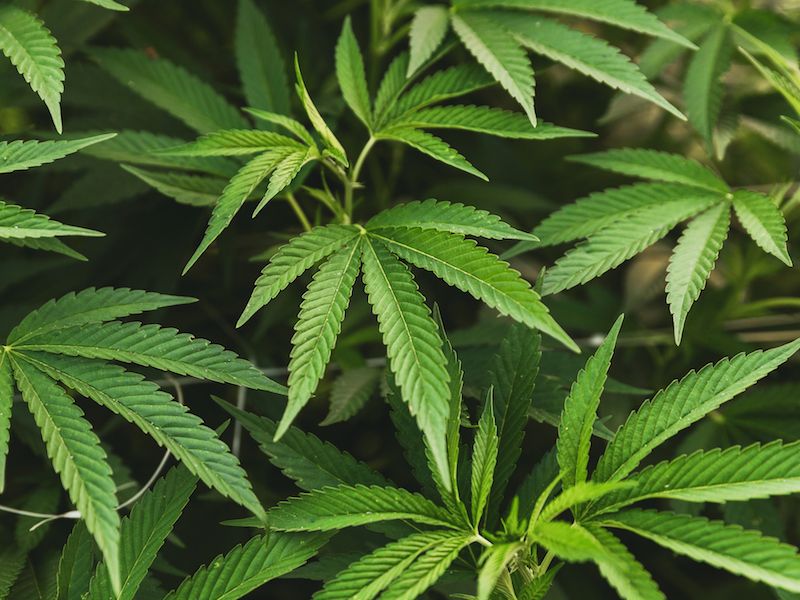
Public opinion surrounding cannabinoids and marijuana have transformed incredibly in the last several decades. Many states currently permit the use of marijuana, THC, or cannabinoid compounds for medicinal uses. A decade ago it would have been unimaginable for pot to be legal for recreational use but some states have even taken this step.
Cannabinoids are identified as a group of compounds found in the cannabis or marijuana plant. Notwithstanding their recent legalization in some states, we’re still discovering new things about cannabinoids. We usually consider these particular substances as having universal healing properties, but established research reveals there could also be negative effects including a strong link between cannabinoid usage and the occurrence of tinnitus symptoms.
Cannabinoids Come in Several Types
Nowadays, cannabinoids can be taken in many forms. It isn’t just weed (or ganja, or refer…..ok, there are lots of nicknames for marijuana so let’s move ahead). Pills, oils, mists and other forms of cannabinoids are currently obtainable.
Every state has it’s own laws regarding what types of cannabinoids you can buy, and under federal law, many types are still illegal if the amount of THC is over 0.3%. That’s the reason why many people are very cautious about cannabinoids.
The concern is that we don’t yet grasp much about some of the long term side effects or complications of cannabinoid use. Some current research into how cannabinoids influence your hearing is a prime example.
New Research Into Cannabinoids And Hearing
Whatever you want to call it, cannabinoids have long been connected to improving a large number of medical ailments. Based on information that is anecdotally available, conditions such as vertigo, nausea, seizures, and many more seem to be improved by cannabinoids. So is it possible that cannabinoids help with tinnitus? That’s just what scientists decided to find out.
Tinnitus may actually be triggered by cannabinoid use, as it turns out. Based on the research, more than 20% of study participants who employed cannabinoid products noted hearing a ringing in their ears. And these participants had never had tinnitus symptoms before the study. What’s more, marijuana users were 20-times more likely to report experiencing tinnitus symptoms after 24 hours.
Further research indicated that marijuana use could exacerbate ear-ringing symptoms in individuals who already suffer from tinnitus. This basically means, there’s some pretty compelling evidence that cannabinoids and tinnitus don’t really mix very well.
How Cannabinoids worsen tinnitus
Your tinnitus can be aggravated by cannabinoids in a couple of concrete ways. First, the incidents of tinnitus symptoms can become more consistent, you could experience the ringing or buzzing in your ears more persistently. Also, your struggles with tinnitus can become more overwhelming when you use cannabinoids. More intense ringing that can be much harder to ignore can be the result.
Cannabinoids have also been found to trigger the onset of tinnitus symptoms. Or, explained another way: after you begin using cannabinoids you might start to experience tinnitus symptoms even if you didn’t have them before.
Unknown Causes of Tinnitus
Just because this connection has been discovered doesn’t necessarily mean the underlying causes are very well grasped. It’s evident that cannabinoids can have an effect on the middle ear and tinnitus symptoms. But what’s causing that impact is far less evident.
But we know that using marijuana, in contrast to other mood altering substances such as alcohol, will cause tinnitus.
Research, undoubtedly, will continue. People will be enabled to make a smart choice concerning which of the many forms of cannabinoid to choose as we gain greater insight into their connection to tinnitus.
The Miracle Cure Beware
There has definitely been no lack of marketing hype surrounding cannabinoids in recent years. That’s partly because perceptions are transforming about cannabinoids (and, to some extent, is also an indication of a desire to move away from opioids). But cannabinoids can and sometimes do produce unwanted results, based upon this new research, and this is especially true when it comes to hearing.
You won’t be able to steer clear of all of the cannabinoid fanatics and evangelists in the world, the marketing for cannabinoids has been especially aggressive.
But this new research certainly reveals a solid link between tinnitus and cannabinoids. So if you suffer from tinnitus, or if you’re concerned about tinnitus it might be worth keeping away from cannabinoids if you can, regardless of how many ads for CBD oil you might run into. The connection between cannabinoids and tinnitus symptoms has been pretty securely established by the research, so it’s worth being careful.